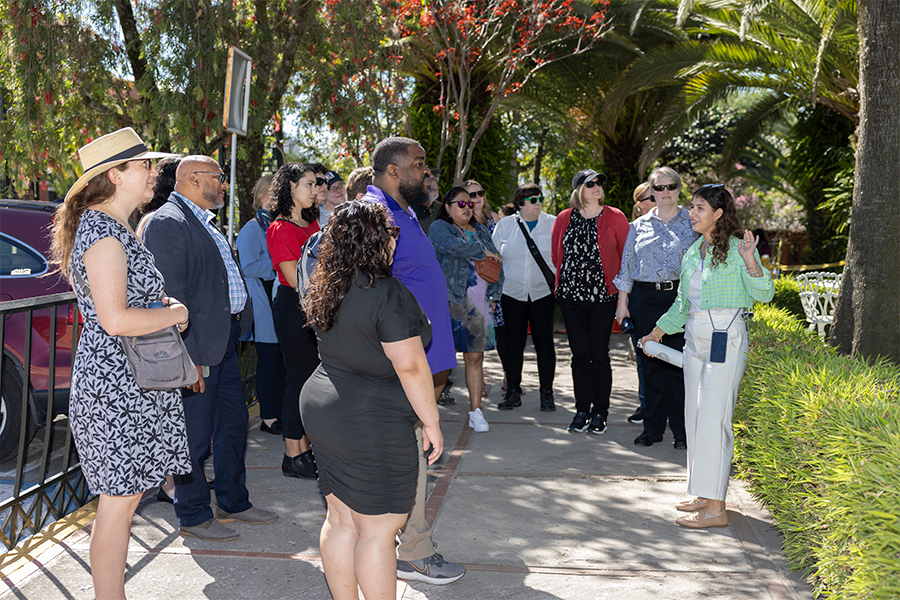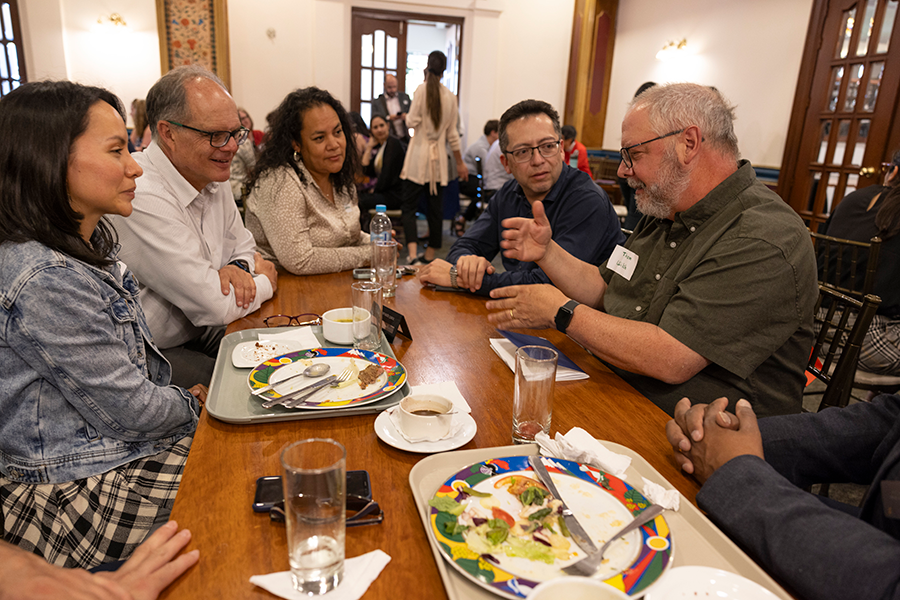Albion College delegation travels to Ecuador to expand global opportunities
Related Posts
Connect With Us
August 8, 2023

Photo courtesy of USFQ
A recent trip to Ecuador by an Albion College delegation of faculty and staff will help broaden the international experience of students by establishing a new partner institution.
A delegation of eight from Albion College and a group of nine from Kalamazoo College spent a week at Universidad San Francisco de Quito, or USFQ. The trip paved the way for two students to study in Quito this fall – and to build bridges into classrooms in Albion.
“This new collaboration is a win-win for Albion students and faculty,” said Cristen Casey, director of the Albion College Center for International Education and Off-Campus Programs. “Students have new opportunities to study and conduct research at a beautiful, multi-disciplinary campus with access to the Galapagos Islands, Amazon and cloud forests. Equally important, Albion faculty have new USFQ partners to bring global perspectives into the classroom right here in Albion for those who do not travel.”
The trip was made possible through a grant from Great Lakes College Association Global Crossroads. The Global Crossroads Initiative seeks to advance the internationalization of the programs of learning that define undergraduates’ experience of the liberal arts.
Faculty and staff joining Casey on the trip were: Abigail Cahill, associate professor of biology; Thom Wilch, professor of earth and environment; Elizabeth Barrios, associate professor of Spanish; Shanti Madhavan-Brown, assistant professor of psychological sciences; Dominick Quinney, assistant professor of ethnic studies; Roy Mathews, director of the Carl A. Gerstacker Institute for Business and Management; and Sarah Noah, director of instructional technology and web development.
“There are lots of meetings and exciting possibilities,” said Cahill. “I made a connection with the faculty of USFQ and found interest in a possible Collaborative Online International Learning opportunity.”

Photo courtesy of USFQ
Collaborative Online International Learning, or COIL, connects accredited courses, linking classrooms of two or more higher education institutions located in different countries or cultural settings. COIL creates team-taught learning environments where faculty from the two cultures work together to develop a shared syllabus, emphasizing experiential student learning.
For example, Cahill said she is interested in creating a course in science communication and how to make connections around a substantial language barrier. She spoke with Dr. Alex Hearn, a faculty member at USFQ, who teaches marine biology in the master’s program.
Because science presentations across the globe are commonly conducted in English, according to Cahill, there are many benefits to engaging students in Ecuador with students in Albion.
“I am hopeful we can connect our classes,” Cahill said. “For students who are not able to go abroad, this experience can be very beneficial and increase communication skills as well.”
For Casey, the trip was about helping continue to build connections that will benefit Albion College students.
“For me, the trip was also a site visit,” Casey said. “Two Albion students will study in Quito this fall, a first for Albion College. I met USFQ colleagues who will provide support services to our students, checked out where they will live and study, and built confidence that this will be an extraordinary experience for them. As a bonus, we strengthened our connections with Kalamazoo College and their team, who send students to USFQ regularly.”
Casey said students Kaitlyn Hernandez-Lampron and Stephanie Ledezma will travel to USFQ in the fall to help establish the basis for a future exchange program.
“We want to offer all of our students the ability to engage globally,” Casey said.